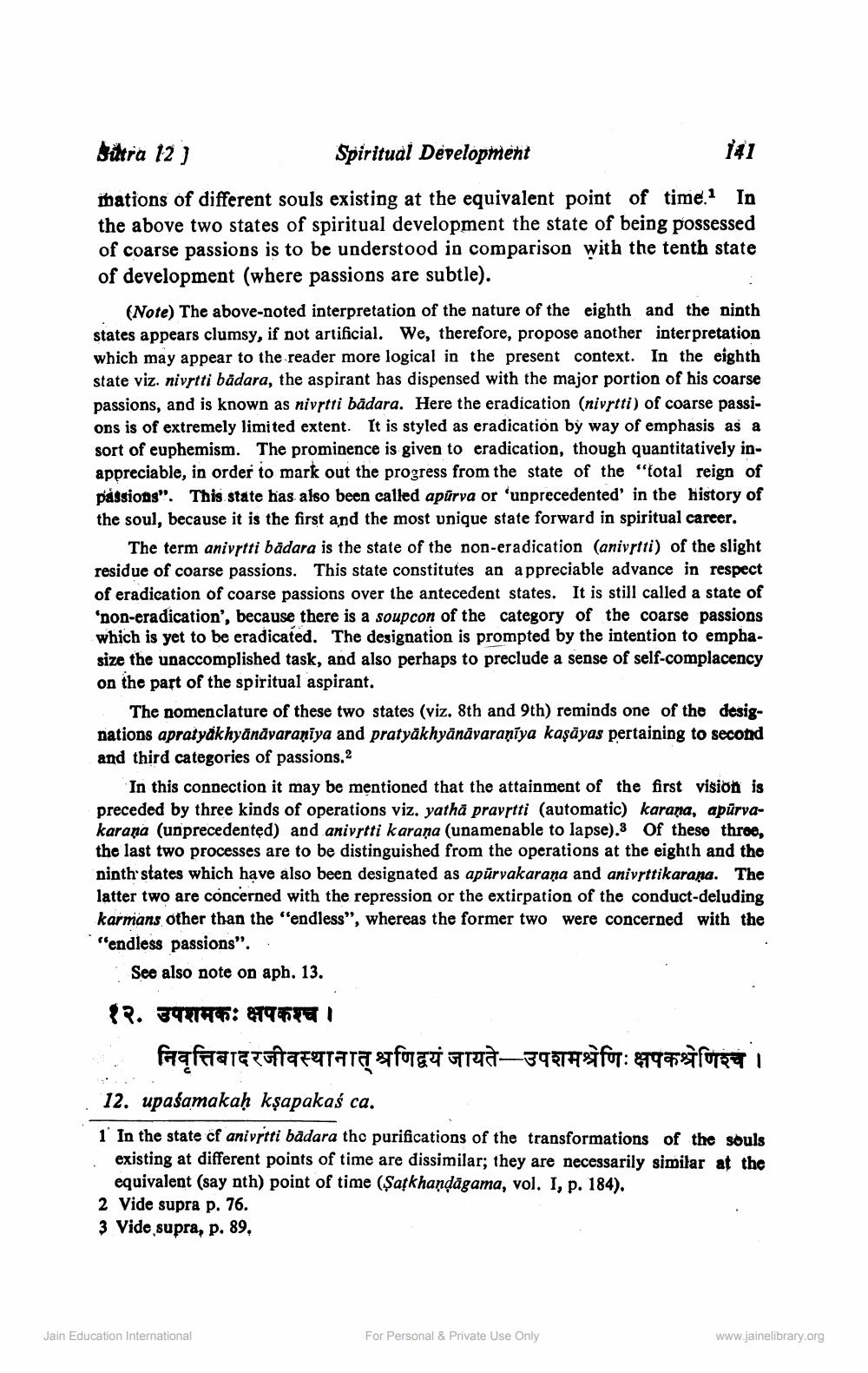________________
Bitra 12 )
Spiritual Development
141
mations of different souls existing at the equivalent point of time. In the above two states of spiritual development the state of being possessed of coarse passions is to be understood in comparison with the tenth state of development (where passions are subtle).
(Note) The above-noted interpretation of the nature of the eighth and the ninth states appears clumsy, if not artificial. We, therefore, propose another interpretation which may appear to the reader more logical in the present context. In the eighth state viz. nivotti bädara, the aspirant has dispensed with the major portion of his coarse passions, and is known as nivstri badara. Here the eradication (nivstti) of coarse passions is of extremely limited extent. It is styled as eradication by way of emphasis as a sort of euphemism. The prominence is given to eradication, though quantitatively inappreciable, in order to mark out the progress from the state of the "total reign of passions". This state has also been called apūrva or 'unprecedented' in the history of the soul, because it is the first and the most unique state forward in spiritual career.
The term anivetti bådara is the state of the non-eradication (anivstti) of the slight residue of coarse passions. This state constitutes an appreciable advance in respect of eradication of coarse passions over the antecedent states. It is still called a state of 'non-eradication', because there is a soupcon of the category of the coarse passions which is yet to be eradicated. The designation is prompted by the intention to emphasize the unaccomplished task, and also perhaps to preclude a sense of self-complacency on the part of the spiritual aspirant.
The nomenclature of these two states (viz. 8th and 9th) reminds one of the designations apratyakhyānāvaraniya and pratyākhyānāvaraniya kaşāyas pertaining to second and third categories of passions.?
In this connection it may be mentioned that the attainment of the first vision is preceded by three kinds of operations viz. yathā pravrtti (automatic) karana, apūrvakarana (unprecedented) and anivetti karana (unamenable to lapse). Of these three, the last two processes are to be distinguished from the operations at the eighth and the ninth states which have also been designated as apürvakarana and anivsttikarana. The latter two are concerned with the repression or the extirpation of the conduct-deluding karmans other than the "endless", whereas the former two were concerned with the "endless passions"..
See also note on aph. 13. १२. उपशमकः क्षपकश्च ।
निवृत्तिबादरजीवस्थानात् श्रणिद्वयं जायते-उपशमश्रेणिः क्षपकश्रेणिश्च । 12. upaśamakaḥ kṣapakaś ca. 1 In the state of anivetti badara thc purifications of the transformations of the souls
existing at different points of time are dissimilar; they are necessarily similar at the
equivalent (say nth) point of time (Şarkhandägama, vol. I, p. 184). 2 Vide supra p. 76. 3 Vide supra, p. 89,
Jain Education International
For Personal & Private Use Only
www.jainelibrary.org




